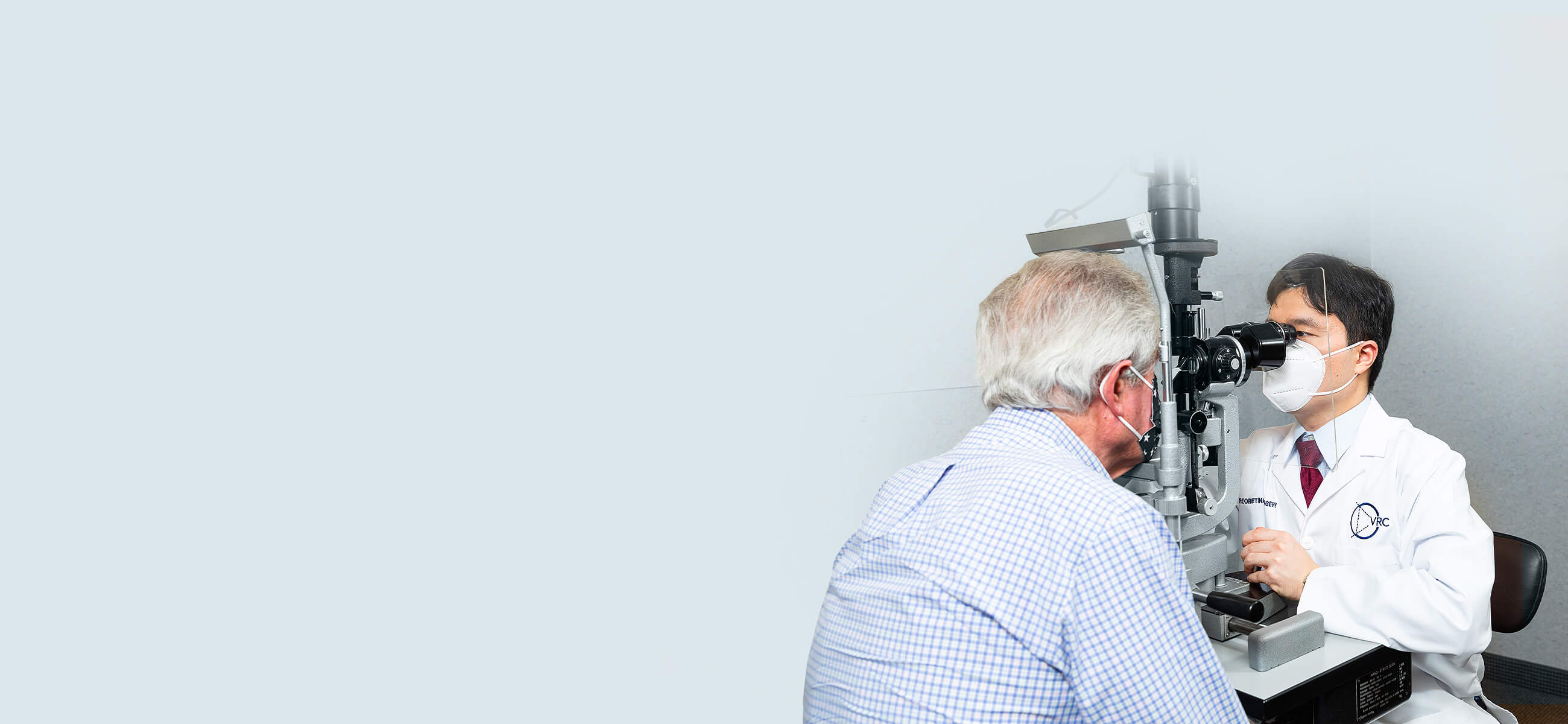Other Retinal Treatments
Many treatments are available for the treatment of retinal conditions. The goal of treatment is to preserve vision, prevent vision loss, or even improve vision. However, vision loss from prior damage is often irreversible, which makes early detection important. Your retina specialist will help you decide what treatments are reasonable for your condition and specific circumstances. In some cases, you may be eligible to receive novel investigational treatments that are available through clinical trials.
Laser Photocoagulation
Retina laser photocoagulation uses a focused laser to create burns in the retina. This laser uses a different wavelength than lasers used in other types of eye surgery, such as cataract surgery or refractive surgery (e.g., PRK or LASIK). Depending on the area of the retina treated, laser photocoagulation is commonly used for a wide variety of conditions, including diabetic retinopathy, diabetic macular edema, age-related macular degeneration, choroidal neovascularization, retinal tears, and some types of tumors. Retina laser photocoagulation procedures generally can be done in the office. The risks of the procedure are minimal and include loss of vision in the area of the retina that is treated. Depending on the condition being treated, the recovery time is minimal and the effects of treatment can be long-standing and quite durable.
Learn more how Laser Photocoagulation is used in the treatment of Flashers and Floaters from Dr. Pamela Weber.
Cryopexy / Freezing
Cryopexy, or freezing treatment, is often used to treat retinal tears or as a part of treating retinal detachments. Retinal tears can be treated and surrounded with cryopexy to seal these areas and reduce the risk of retinal detachment. After administration of topical anesthesia, a cryopexy probe is placed on the external surface of the eye and the tip is used to freeze the retina from the outside of the eye. After treatment, you may experience transient discomfort and eye redness that will gradually improve. In the days and weeks following treatment, the areas that were treated with cryopexy mature into an adherent scar.
Photodynamic Therapy
Photodynamic therapy is used to close abnormal leaking blood vessels in the retina and choroid, the blood supply that envelops the outer retina. This treatment is most commonly used for certain types of wet macular degeneration, but has been studied for other conditions as well. Photodynamic therapy involves infusion of verteporfin, a laser-activated dye, into your vein, which gets distributed through the body, including the eye. A special laser is focused on the abnormal area, which activates the dye in that area causing the blood vessels in that area to close.
After infusion with the dye, the medication will make your skin sensitive to light for about a week. During the seven days after treatment, we recommend that you avoid sunlight as much as possible and cover your skin if you do go outdoors, such as with a wide-brimmed hat, long sleeves, and long pants.
Pneumatic Retinopexy
Pneumatic retinopexy is one of several possible methods to repair a retinal detachment. A long-acting gas bubble is injected into the eye, and laser photocoagulation or cryopexy is used to seal the retinal break. Your retina specialist will help determine whether you would be a good candidate for this procedure.
The purpose of the gas bubble is to plug the retinal break until the retina reattaches. In order for the procedure to be successful, you will need to maintain a specific head position so that the gas bubble is supporting the correct part of the retina after the procedure. The gas bubble is expected to increase in size in the days following the procedure and will shrink over the course of the following weeks.
Choose Vitreoretinal Consultants of NY for Retinal Treatment in New York
At Vitreoretinal Consultants of NY, we are dedicated to providing exceptional retinal care to patients across the Greater NYC Metropolitan Area, including Queens and Manhattan, as well as Nassau, Suffolk, Rockland, and Westchester counties. For us, nothing is as important as your eyesight. Contact us with any questions, or schedule an appointment with VRC today.


